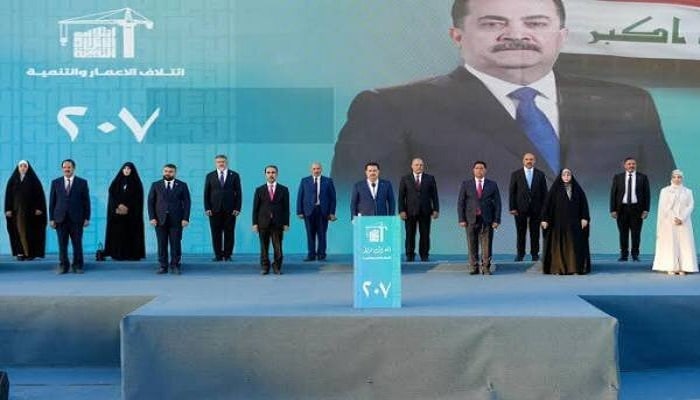PNN – Analysis of Iraq’s election results indicates that within the reconfiguration of the country’s political map, the Shiite Coordination Framework has emerged as the leading force and is set to become the most prominent actor in the selection of the Prime Minister.
According to the report of Pakistan News Network, citing Al-Masalah, current estimates show that Iraqi Shiites secured 197 seats in Tuesday’s elections. Sunni Arabs obtained 67 parliamentary seats, Kurds won 56 seats, and other religious minorities reached their guaranteed nine seats under Iraq’s electoral law.
Read more:
Iraqi elections and the mechanism for appointing the country’s three presidents
Al-Masalah reported that, based on the election outcomes and an unofficial political agreement calling for a reshuffling of positions within the Shiite bloc, as well as initial consultations to form coalitions with Sunni and Kurdish parties, it appears unlikely that Mohammed Shia Al-Sudani will continue as Prime Minister.
The report adds that, from a neutral perspective, Iraq’s elections were not merely a competition for parliamentary seats but a test of how deeply rooted the democratic experience is in Iraq’s tense environment. Campaign offices revealed the extent of government intervention and misuse of public resources to favor specific parties.
Political analyses indicate that the Coordination Framework aims to consolidate itself as a force guaranteeing stability against rivals. However, the post-election phase is expected to involve difficult negotiations to establish new balances within and outside the Shiite parties.
Overall, future developments are likely to involve more than a simple change of names; they will represent a realignment of power among traditional forces that have not relinquished their influence. This situation leaves open the possibility of either reaching a peaceful agreement or entering a prolonged political crisis.

